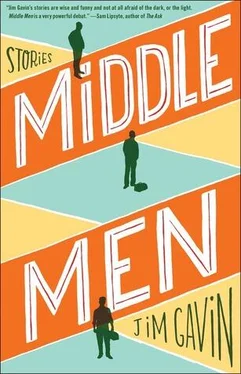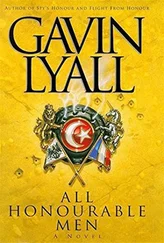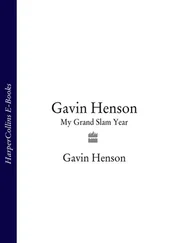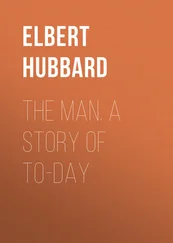During my layover in Boston, I called my mom to tell her I had made it. She too was not a proponent of this trip. She had refused to loan me money for a plane ticket. “What the hell are you doing, Brian?” she asked me for the hundreth time, and I hung up on her.
I boarded a small plane for Bermuda. Sitting to my right, in the window seat, was an older man, a retired banker, who wore a blue blazer with khaki pants and a pair of leather sandals. We talked the entire flight. He went to Bermuda every Christmas to golf and seemed pleased that I was also traveling alone. I told him I was there to do some snorkeling. As the jet came down through the clouds, he let me lean across him and see the island.
“It looks like a hook,” I said.
It was probably beautiful, probably the most beautiful thing I’ve ever seen — the hills green, the water turquoise — but it was too small and precious to be an actual place with roads and people. It seemed roughly the same size as LAX.
“I usually sail from Hingham,” he said, “but things didn’t work out this year.”
We said goodbye on the tarmac, but after I walked out of the terminal and found the bus stop, I heard him calling my name. He was in the backseat of a taxi.
“Are you going to Hamilton?”
“I think so.”
“Get in.”
It was a cloudy evening. Going over the causeway to the main island, I saw yachts in the harbor and black seabirds rising from the breakwaters. The taxi swerved down narrow streets that were lined with stone walls. The hillsides were green and dotted with pastel houses, each one with a white limestone roof that rose in steps like a Devo hat.
Streetlamps glowed along Front Street. The taxi pulled up next to a hotel and the driver told us how much. The banker got out his wallet.
“Split it?” he said.
“I thought you were treating.”
“I never said that.”
“I would’ve just taken the bus.”
“The gentleman’s waiting.”
“I don’t have any Bermudian money.”
“They take American money.”
“I don’t have any of that either.”
The banker paid the driver. I got out of the taxi and helped him get his golf clubs out of the trunk. He took a deep breath. “Well, I’m sorry for the misunderstanding,” he said. “I just thought we were a team.”
We shook hands and said goodbye again. I looked at my map and started walking north up one of the main streets. Everything was smaller in Bermuda. Cars, buildings, people. Karen now owned a metallic blue 1969 Vespa Rally. She’d sent me a picture of it, back when she was still sending pictures, and I had held it aloft to my roommates, proving once and for all that Karen was the queen of the mods, the iciest of crones. I passed a little park and saw two private-school kids in blazers, sharing a cigarette and cursing in their dainty little accents. It started to rain.
The school was in an old colonial building, lime green with white shutters. The front door was locked. Through the windows I saw a chubby little blond girl being led down the stairs by her mother. They opened the door and I asked her if Karen Kovac was there. She said the only teacher left inside was Mr. Hadley-Rowe. She opened an umbrella, took the little girl by the hand, and they jogged to their little car.
At the top of the stairs I saw a young man with wispy brown hair and fashionable glasses. The nameplate on his door read “Jeremy Hadley-Rowe.” He was my age, but wore nice clothes; he was the first hyphenated man I had ever met. I told him that I was a friend of Karen’s, and went on to explain in carefully planned detail that because of some miscommunication she missed me at the airport and I just needed her address, that’s all.
“You must be Brian.”
“I am.”
“She said this might happen.”
“Where is she?”
“She lives in Somerset now,” he said.
Back in November, I had sent my last letter to her Hamilton address, but it got returned. He didn’t know her new address in Somerset, but he had been there before.
“Her scooter breaks down a lot,” he said. “And her neighborhood’s a bit crap. I often give her rides home.”
I got out my map and he showed me where she lived and which bus to take. The rain continued as I walked down to Front Street. When my bus came, it was crowded and I had to stand in the middle. The windows fogged up and I couldn’t take in the scenery. With all the stops it took forty-five minutes to get into Somerset. I got out and started walking, checking my map over and over. The streets were narrow and lethal. Kids zipped around on Vespas, laughing and screaming. When a car passed, I had to inch along the mossy stone walls to keep from getting hit. It was completely dark when I finally found her street. She lived in a house at the end of a cul-de-sac. I knocked.
A black man with a shaved head answered the door. He was holding an orange cat.
“Does Karen live here?”
“She’s in the cottage out back,” he said. In the room behind him a boy and girl were sitting on the floor, drawing pictures and watching TV. He stepped onto the front steps and shut the door behind him. He shook my hand.
“You must be Brian.”
I nodded.
“I’m Peter, Karen’s landlord. She’s not here.”
“Where is she?”
“Most of her students fuck off back to England for the holidays. She’s house-sitting this week for one of the families. This is Sam, her cat.”
He held up Sam so I could give him a little scratch under the chin. Peter didn’t know where Karen was house-sitting. I asked if there was any chance he could give me a ride back to Hamilton. His wife had the car, he said, but his friend Kano might be able to help. I followed him into the house. As he picked up the phone, his kids looked at me briefly, with total indifference, and returned to their drawing.
“Karen’s boy’s come around,” he told Kano. “He needs a ride.” Peter nodded a couple times and hung up. “Go wait at the end of the street. He’ll be right there.”
“Should I pay him?”
“I don’t know. That’s up to you.”
“Great. Thanks.”
The rain stopped. The clouds were breaking up and I could see some stars. When Kano pulled up he told me I couldn’t wear shorts on the back of his Vespa.
“You might burn your leg on the motor.”
“I don’t have any money.”
“It’s all right. You’re Karen’s friend.”
Karen had added me to her litany of woe, and I wondered if there was anyone on the island who didn’t know her sob story.
“I’m not her friend,” I said.
I changed into jeans right there on the street. Kano was tall and had to hunch his back to fit on the scooter. He took a shortcut along a stretch of old railroad tracks, his motor cracking the night air as we raced along a corridor of towering stone walls. I would remember my night ride with Kano, whoever he was, as the best part of my trip.
When we got back to Hamilton I asked him to drop me off at the hotel on Front Street. It was the only place I could think to go.
“I thought you didn’t have any money,” he said.
“I’m not actually staying here.”
I felt guilty, so I ended up giving him ten bucks. Kano revved up and disappeared around a corner.
My plan was to wait until morning and then go back to the school. I spent a few hours in the lobby, trying to sleep in a big leather chair. At some point a concierge came by and asked if I was a guest of the hotel.
“Yes,” I said.
“What’s your name, sir?” he asked.
“Nigel Dickslap.”
As a security guard escorted me from the lobby, I saw the banker sitting alone at the hotel bar.
• • •
For the last ten years, when I dream about Bermuda, I dream about this part of the trip, walking aimlessly around Hamilton, trying to avoid the constabulary. I never see Karen. Instead, I just wander around the island, looking for her in the rain, meeting people who say they’ve seen her. For some reason, in the dreams, I never trust these people.
Читать дальше












